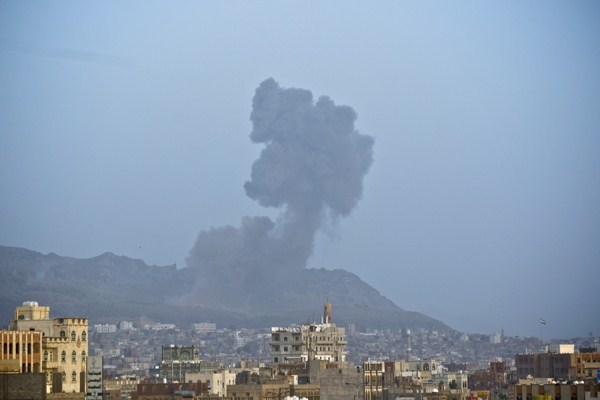Last week’s cease-fire in Yemen proved as shaky as many expected, and after it promptly expired Sunday evening, Saudi airstrikes resumed across the country, targeting Houthi rebels as well as forces loyal to ousted President Ali Abdullah Saleh. The five-day “humanitarian pause” in fighting coincided with the visit to the United States by the architects of Saudi Arabia’s war on Houthi rebels in Yemen—the recently elevated Crown Prince Mohamed bin Nayef and Deputy Crown Prince Mohamed bin Salman. Both were at Camp David last week for a summit with fellow Gulf Cooperation Council leaders and U.S. President Barack Obama. The fact that the cease-fire coincided with the princes’ visit to the U.S. was yet another sign that this is really a Saudi operation, even if, technically speaking, Riyadh has cobbled together a coalition.
As the Associated Press reported last week, just two of Saudi Arabia’s coalition partners are actively striking Yemen: the United Arab Emirates and Morocco. According to a state-run Emirati news agency, 30 jets from the UAE have participated in air strikes, targeting Scud missile sites, Houthi camps and air defense systems, while just six Moroccan warplanes are in the coalition fleet. But as the AP noted, “Morocco offered no specifics about its role until Monday, when it announced one of its fighter jets had gone missing while taking part in an operation.”
Other allies in the Gulf and the wider Middle East have contributed aircraft, but their roles remain vague—not least because the details come from statements made by state-run media. Kuwait offered 15 fighter jets, but their combat role isn’t known. Neither is that of the dozen jets committed by Bahrain. Qatar sent 10 of its own jets, but “the state-run Qatar News Agency has not reported on the contribution, or whether the jets have taken part in any airstrike.”

